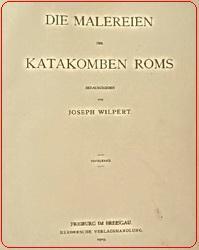
Cambridge Companions - Prominent Personalities and Their Works
Augustine’s Confessions is undoubtedly among the most renowned works of Christian literature ever. In fact, it’s a classic of world literature that keeps generating editions, translations, commentaries, and monographs. In the Confessions, readers have enjoyed Augustine’s rhetoric and his beautiful Latin. Some have pondered about the phenomenon called “autobiography,” others have qualified such genre designation, and still others have wondered about the very possibility of it. Some have admired the Confessions as a pearl of Western literary culture. Wittgenstein called it “the most serious book ever written.” Many readers have also studied the Confessions for its brilliant theological and/or philosophical insight. On the other hand, there are also those who have been disturbed by Augustine’s alleged narcissism and infantile megalomania, or those who have been deeply puzzled by Augustine’s suspiciously selective memory and, consequently, have doubted the author’s credibility, as well as the truthfulness and historicity of his (meta)narrative.
Perhaps it should not be hastily presupposed that every potential reader of the Cambridge Companion to Augustine’s Confessions has, in fact, read the classic itself; that is, Augustine’s Confessions. Mark Twain reported someone’s (Professor Winchester’s) definition of a classic as “something that everybody wants to have read and nobody wants to read.” More seriously, Gadamer has explicated that to consider a text a classic, one thinks of something permanent and always relevant. The “classical” speaks in such a way that it is not merely a statement about what happened in the past, but it also addresses the present. In fact, it has the ability to speak directly to the situation of a reader in any time.
The Cambridge Companion to Augustine's 'Confessions'
Edited by Tarmo Toom, 2020
- Introduction: What Is the Cambridge Companion to Augustine ’ s Confessions? TARMO TOOM
Part I. Circumstances of Composition
- 1. Title, Time, and Circumstances of Composition: The Genesis of the Confessions. CAROLYN HAMMOND
- 2. Structure and Genre of the Confessions. ANNEMARÉ KOTZÉ
- 3. Anticipated Readers. JASON DAVID BEDUHN
Part II. Main Themes and Topics
- 4. Aversion and Conversion. MARIE-ANNE VANNIER
- 5. Creation and Recreation. MATTHEW DREVER
- 6. Sin and Concupiscence. JOHANNES VAN OORT
- 7. Grace. VOLKER HENNING DRECOLL
- 8. God. PAUL VAN GEEST
- 9. Happiness and Friendship. ANNE-ISABELLE BOUTON-TOUBOULIC
- 10. Love, Will, and the Intellectual Ascents. SARAH CATHERINE BYERS
- 11. Memory, Eternity, and Time. LENKA KARFÍKOVÁ
- 12. Philosophy. GIOVANNI CATAPANO
- 13. Pride and Humility. NOTKER BAUMANN
- 14. Soul, Self, and Interiority. PHILLIP CARY
Part III. Reception and Reading Strategies
- 15. Manuscript Transmission, Critical Editions, and English Translations. GERT PARTOENS
- 16. Reception in the Middle Ages. ERIC LELAND SAAK
- 17. Reception in the Period of Reformations: The Confessions , 1500 – 1650. KATRIN ETTENHUBER
- 18. Reception during the Enlightenment: A for Anti-Augustine. PATRICK RILEY
- 19. Reading (in) Augustine ’ s Confessions. MARK VESSEY

The Cambridge Companion to Augustine's City of God
Edited by Fr. David Vincent Meconi, S.J., 2021
- 1. Introduction. David Vincent Meconi, S.J.
- 2. Book 1. The Crumbling and Consecration of Rome. David Vincent Meconi, S.J.
- 3. Book 2. Augustine on Religion without Morality. Oliver O’Donovan
- 4. Book 3. Rome’s Woes before Christ: History and Rhetoric in The City of God. Christian Tornau
- 5. Books 4 & 5. Roman Religion and Just Power. Dean Hammer
- 6. Books 6 & 7. Nature, Convention, Civil Religion, and Politics. Mary M. Keys
- 7. Books 8–10. Augustine and Platonism. Mark Edwards
- 8. Books 11 & 12. Angels and Demons: The Eternal Framing of the Two Cities. James Wetzel
- 9. Books 13 & 14. The Incomprehensibility of the Fall and Its Consequences for Humanity. Mathijs Lamberigts
- 10. Books 15 & 16. Genesis, Paul, and Salvation History for the Citizens of God’s City. Jonathan P. Yates
- 11. Books 17 & 18. Prophecy as Proof in Augustine’s City of God. Michael Sweeney
- 12. Book 19. The Ends of the Two Cities: Augustine’s Appeal for Peace. Andrew Hofer, O.P.
- 13. Book 20. The Last Day: Judgment, Purification, and Transformation. Isabel Moreira
- 14. Books 21 & 22. The End of the Body: Heaven and Hell in The City of God. David G. Hunter
- 15. Epilogue. The Architectonic Plan of The City of God. John C. Cavadini

The Cambridge Companion to Augustine
Edited by Eleonore Stump and Norman Kretzmann, 2003
● 1. Augustine: his time and lives. James J. O’Donnell
● 2. Faith and reason. John Rist
● 3. Augustine on evil and original sin. William E. Mann
● 4. Predestination, Pelagianism, and foreknowledge. James Wetzel
● 5. Biblical interpretation. Thomas Williams
● 6. The divine nature. Scott MacDonald
● 7. De Trinitate. Mary T. Clark
● 8. Time and creation in Augustine. Simo Knuuttila
● 9. Augustine’s theory of soul. Roland Teske
● 10. Augustine on free will. Eleonore Stump
● 11. Augustine’s philosophy of memory. Roland Teske
● 12. The response to skepticism and the mechanisms of cognition. Gerard O’Daly
● 13. Knowledge and illumination. Gareth B. Matthews
● 14. Augustine’s philosophy of language. Christopher Kirwan
● 15. Augustine’s ethics. Bonnie Kent
● 16. Augustine’s political philosophy. Paul Weithman
● 17. Augustine and medieval philosophy. M. W. F. Stone
● 18. Post-medieval Augustinianism. Gareth B. Matthews

The Cambridge Companion to Augustine
Edited by Eleonore Stump and David Vincent Meconi, 2nd edition, 2014
- Introduction. Eleonore Stump and David Vincent Meconi, S.J.
Part I. The nature of God
- 1. The divine nature: being and goodness. Scott MacDonald
- 2. God’s eternal knowledge according to Augustine. John C. Cavadini
- 3. Augustine on the triune life of God. Lewis Ayres
Part II. God’s relation to the world
- 4. Time and creation in Augustine. Simo Knuuttila
- 5. Augustine on evil and original sin. William E. Mann
- 6. Jesus Christ, the knowledge and wisdom of God. Allan Fitzgerald, O.S.A.
Part III. Human nature
- 7. The human soul: Augustine’s case for soul–body dualism. Bruno Niederbacher, S.J.
- 8. Augustine on knowledge. Peter King
- 9. Augustine on free will. Eleonore Stump
Part IV. Human excellence
- 10. Augustine’s ethics. Timothy Chappell
- 11. Augustine’s doctrine of deification. David Vincent Meconi, S.J.
Part V. Political and ecclesial life
- 12. Augustine’s political philosophy. Paul Weithman
- 13. Heaven and the ecclesia perfecta in Augustine. David Vincent Meconi, S.J.
Part VI. Language and faith
- 14. Faith and reason. John Peter Kenney
- 15. Augustine on language. Peter King
- 16. Hermeneutics and reading Scripture. Thomas Williams
Part VII. Augustine’s legacy
- 17. Augustine’s legacy: success or failure? Karla Pollmann

The Cambridge Companion to Aquinas
Edited by Norman Kretzmann and Eleonore Stump, 1993
● 1. Aquinas's philosophy in its historical setting. JAN A. AERTSEN
● 2. Aristotle and Aquinas. JOSEPH OWENS, C.Ss.R.
● 3. Aquinas and Islamic and Jewish thinkers. DAVID B. BURRELL, C.S.C.
● 4. Metaphysics. JOHN F. WIPPEL
● 5. Philosophy of mind. NORMAN KRETZMANN
● 6. Theory of knowledge. SCOTT MACDONALD
● 7. Ethics. RALPH MclNERNY
● 8. Law and politics. PAUL E. SIGMUND
● 9. Theology and philosophy. MARK D. JORDAN
● 10. Biblical commentary and philosophy. ELEONORE STUMP

The New Cambridge Companion to Aquinas
Edited by Eleonore Stump and Thomas Joseph White, 2022
- Introduction. Eleonore Stump and Thomas Joseph White, OP
PART I. LIFE AND WORKS
- 1. Thomas Aquinas: A Life Pursuing Wisdom. Dominic Legge, OP
PART II. METAPHYSICS AND THE ULTIMATE FOUNDATION OF REALITY
- 2. First Principles: Hylomorphism and Causation. Jeffrey E. Brower
- 3. Essence and Existence, God’s Simplicity and Trinity. Thomas Joseph White, OP
- 4. Goodness and Being, Transcendentals, Participation. Gaven Kerr
- 5. The Metaphysics of Creation: Secondary Causality, Modern Science. James Dominic Rooney, OP
- 6. The Nature of Human Beings. Eleonore Stump
PART III. EPISTEMOLOGY
- 7. The Nature of Cognition and Knowledge. Therese Scarpelli Cory
- 8. Intellectual Virtues: Acquiring Understanding. Angela Knobel
- 9. Intellect and Will: Free Will and Free Choice. Michael Gorman
PART IV. ETHICS
- 10. Grace and Free Will. Tobias Hoffmann
- 11. From Metaethics to Normative Ethics. Colleen McCluskey
- 12. Infused Virtues, Gifts, and Fruits. Andrew Pinsent
PART V. PHILOSOPHICAL THEOLOGY
- 13. Original Sin. Brian Leftow
- 14. The Incarnation. Timothy Pawl
- 15. Evil, Sin, and Redemption. Thomas Williams
- 16. Resurrection and Eschatology. Simon Francis Gaine, OP

The Cambridge Companion to Francis of Assisi
Edited by Michael J. P. Robson, 2011
● Introduction. Michael J. P. Robson
Part I. Francis of Assisi
● 1. Francis and the Franciscan movement (1181/2–1226). Michael F. Cusato
● 2. The writings of Francis. Michael J. P. Robson
● 3. The Rule and life of the Friars Minor. William J. Short
● 4. Francis and his hagiographical tradition. Michael W. Blastic
● 5. Voluntary simplicity: the attitude of Francis towards learning in the early biographies. Neslihan Şenocak
● 6. Francis and the historiographical tradition in the order. Annette Kehnel
● 7. Francis and Clare and the emergence of the Second Order. Jean François Godet-Calogeras
● 8. Francis and the encounter with the sultan (1219). Steven J. McMichael
● 9. Francis and creation. Timothy J. Johnson
Part II. The heritage of Francis of Assisi
● 10. Francis and the pursuit of learning. Bert Roest
● 11. The early Franciscans and the towns and cities. Jens Röhrkasten
● 12. The Third Order of Francis. Ingrid Peterson
● 13. Franciscan ideals and the royal family of France (1226–1328). Sean L. Field
● 14. Franciscans as papal and royal envoys to the Tartars (1245–1255). Peter Jackson
● 15. Franciscan missions. E. Randolph Daniel
● 16. Pope John XXII, the Franciscan order and its Rule. Patrick Nold
● 17. The ecumenical appeal of Francis. Petà Dunstan

The Cambridge Companion to the Summa Theologiae
Edited by Philip McCosker and Denys Turner, 2016
- Introduction. Philip McCosker and Denys Turner
Part I
- Reading the Summa Theologiae. Frederick Christian Bauerschmidt
- Dominican spirituality. Timothy Radcliffe OP
- Structure. Mark D. Jordan
- Scripture. Pim Valkenberg
- Philosophy. Karen Kilby
- Method. John Marenbon
Part II
- God. Brian Davies OP
- Eternity. Herbert McCabe OP †
- Trinity. Eugene F. Rogers Jr.
- Holy Spirit. Gilles Emery OP
- Creation. Kathryn Tanner
- Providence. David Burrell CSC
- The human person. Denys Turner
- Happiness. Jean Porter
- Virtues. James F. Keenan SJ
- Grace. Philip McCosker
- Person of Christ. Sarah Coakley
- Life of Christ. Paul Gondreau
- Redemption. Nicholas M. Healy
- Sacraments. Olivier-Thomas Venard OP
Part III
- Catholic traditions. Paul J. Griffiths
- Orthodox traditions. Andrew Louth
- Reformed traditions. Christoph Schwöbel
- Non-Abrahamic traditions. Francis X. Clooney SJ

The Cambridge Companion to Bede
Edited by Scott Degregorio, 2010
PART I. BEDE’ S LIFE AND CONTEXT
● 1. Bede’s life in context. michelle p. brown
● 2. Secular and political contexts. james campbell
● 3. The world of Latin learning. rosalind love
● 4. Church and monastery in Bede’s Northumbria. sarah foot
● 5. British and Irish contexts. clare stancliffe
● 6. The foundation of Bede’s Wearmouth-Jarrow. ian wood
PART II. BEDE’S WRITINGS
● 7. Bede and education. calvin b. kendall
● 8. Bede and science. faith wallis
● 9. Bede and the Old Testament. scott degregorio
● 10. Bede and the New Testament. arthur g. holder
● 11. Bede and preaching. lawrence t. martin
● 12. Bede and history. alan thacker
PART III. RECEPTION AND INFLUENCE
● 13. The cult of Bede. david rollason
● 14. Bede and the continent in the Carolingian age and beyond. joshua a. westgard
● 15. Bede in later Anglo-Saxon England. sharon m. rowley
● 16. The Englishness of Bede, from then to now. allen j. frantzen

The Cambridge Companion to Dante's 'Commedia'
Edited by Zygmunt G. Baranski and Simon Gilson, 2019
Introduction. Zygmunt G. Baranski and Simon Gilson
- 1. Narrative Structure. Lino Pertile
- 2. Dante Alighieri, Dante-poet, Dante-character. Giuseppe Ledda
- 3. Characterization. Laurence E. Hooper
- 4. Moral Structure. George Corbett
- 5. Title, Genre, Metaliterary Aspects. Theodore J. Cachey Jr.
- 6. Language and Style. Mirko Tavoni
- 7. Allegories of the Corpus. James C. Kriesel
- 8. Classical Culture. Simone Marchesi
- 9. Vernacular Literature and Culture. Tristan Kay
- 10. Religious Culture. Paola Nasti
- 11. Doctrine. Simon Gilson
- 12. Politics. Claire E. Honess
- 13. Genesis, Dating, and Dante’s ‘Other Works’. Zygmunt G. Baranski
- 14. Transmission History. Prue Shaw
- 15. Early Reception until 1481. Anna Pegoretti
- 16. Later Reception from 1481 to the Present. Fabio Camilletti
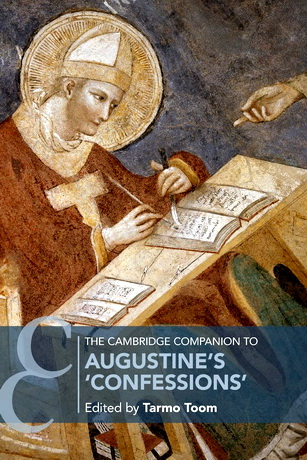
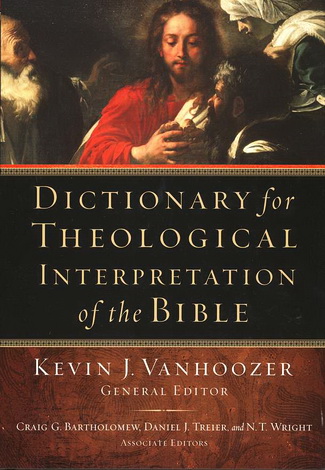
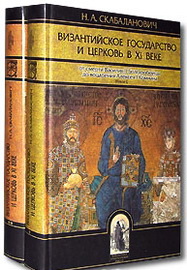

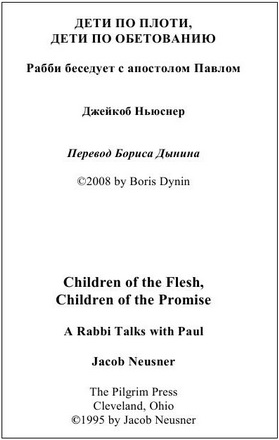
Комментарии (5 комментариев)
Нужны! Бесценный материал для знающих English.
нужны
Друзья, ждем ваших комментариев - нужны ли вам далее такие выпуски Cambridge Companions?
Конечно нужны.
Спасибо за ценные файлы - какая объемлющая картина раннехристианской мысли!